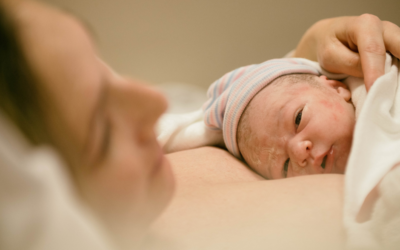
Congratulations, mama, you’re expecting a baby! This is such a wonderful time, however, you’ve probably been bombarded with advice from well-meaning friends and family members. There are so many pregnancy myths that have permeated society that just aren’t backed by research and science.
From exercising being off-limits to pregnant women needing to eat for two, let’s debunk some of the most prevailing myths and get down to the truth!

Myth 1: Coffee Needs To Be Completely Off Limits
If you’ve completely cut yourself off from coffee because you’re worried about your baby, worry no longer. You don’t have to go cold turkey when it comes to caffeine. According to the American College of Obstetricians and Gynecologists (ACOG), “…moderate caffeine consumption (less than 200 milligrams per day) does not cause miscarriage or preterm birth. That’s the amount in one 12-ounce cup of coffee.” Just remember that other drinks – like soda and tea – also contain caffeine, so that needs to be included in your daily limit.

Myth 2: Pregnant Women Shouldn’t Eat Seafood
Actually, including seafood in your pregnancy meal plan is healthy! The myth that all seafood needs to be avoided may stem from the fact that pregnant women shouldn’t eat sushi. The raw fish that sushi is made from can result in exposure to mercury.
However, cooked seafood that is low in mercury is totally fine and even recommended. “Seafood, which includes fish and shellfish, can be a great source of protein, iron and zinc — crucial nutrients for your baby’s growth and development. The omega-3 fatty acids in many fish, including docosahexaenoic acid (DHA), also can promote your baby’s brain development,” explains Mayo Clinic.
The Food and Drug Administration (FDA) advises pregnant and breastfeeding women to eat eight to 12 ounces of seafood a week. Stick to low mercury options; some of the best include anchovies, sardines, hake, cod, trout, oysters, salmon, and squid.

Myth 3: Breastfeeding Comes Naturally Once You Give Birth
So many new mamas are shocked when, after they’ve given birth, breastfeeding their baby is a struggle. Yes, breastfeeding is completely natural, but it’s not easy. Getting the correct latch, knowing how long you should breastfeed, and establishing a strong milk supply can become so much simpler when you’re prepared.
This is why Baby Settler has created the Breastfeeding Made Simple Course. Feel confident in knowing what to expect from breastfeeding at birth, through growth spurts and developmental leaps, how to extend nighttime sleep with breastfeeding, and everything in between with the help of this course. Click here to get yours.

Myth 4: Pregnant Women Shouldn’t Exercise
For the majority of expecting mothers, exercise is healthy! Whether exercise has always been a part of your routine or you’ve never exercised before.
Not only will regular movement help make pregnancy more comfortable in general and may reduce the risk of complications such as gestational diabetes and high blood pressure, but it’ll also speed up your recovery after giving birth. What To Expect explains, “In a study, women who exercised recovered faster after labor (even after controlling for the type of delivery), resuming household chores more quickly than those who didn’t exercise.”
According to Johns Hopkins Medicine, pregnant women should aim for 30 minutes of moderate exercise daily, five days a week. Some of the best forms of exercise include yoga (not hot yoga, though), working out on gym equipment such as the elliptical, water exercises in the pool, and pilates. Avoid exercises that rely too much on balance (such as biking) to try and mitigate the chances of hard falls.

Myth 5: Pregnant Women Have To Eat For Two
Yes, pregnancy does take its toll on your body. You need to make sure you’re fueling yourself with enough nutrients. However, that doesn’t equate to doubling your intake of food. What really matters is nutritional quality. While gaining weight during pregnancy is expected and normal, gaining too much weight can cause complications. “If a woman gained too much weight, the risk of bearing a baby considered oversize — larger than 8 pounds, 3 ounces — nearly doubled. These same women increased their risk of a surgical delivery by 30 percent,” says Healthline.
So, how many extra calories should you consume? The Centers for Disease Control (CDC) tells that in the first trimester, pregnant women don’t need to worry about getting in extra calories. In the second trimester, aim for an extra 200 to 400 calories a day, and in the third trimester, 400.
It’s important to be intentional with your pregnancy diet. Ensure your meals are nutritionally dense with the vitamins you need. Aim for foods that contain folic acid, iron, calcium, vitamin D, choline, omega-3 fatty acids, B vitamins, protein, and vitamin C.
Along your pregnancy journey, you’re going to get so much advice about what you should and shouldn’t do. It’s important to be selective about who you listen to. And, do your research so that you know that you’re doing what has proven to be healthy for both you and your developing baby.




